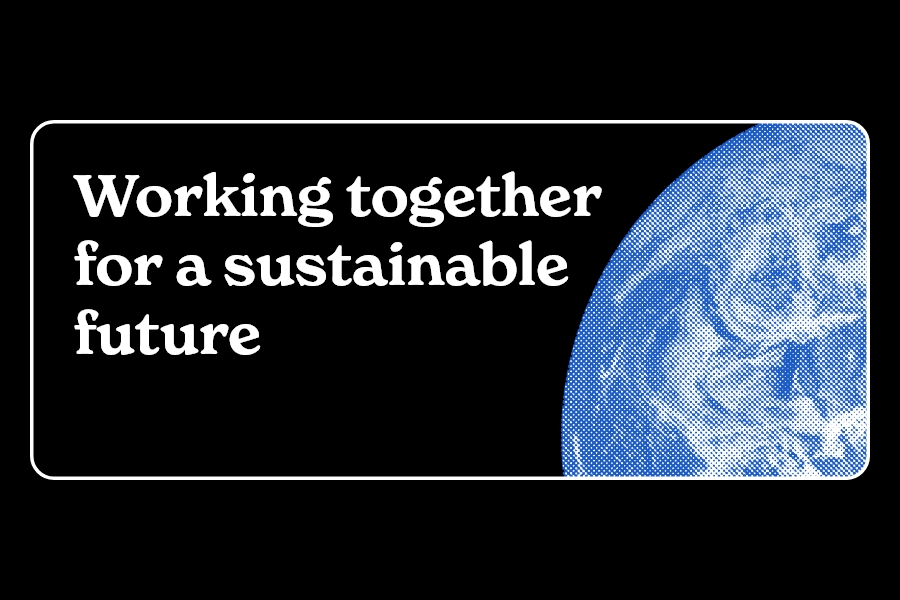How Exertis and our vendors are working towards a cleaner planet
Sustainability is an important value for us at Exertis. We’re constantly trying to find new ways to keep our planet healthy and clean through our daily operations. And many of the vendors we work with are doing the same. Through a few small changes, we’re working together to help the planet, while still producing all the industry-leading tech our customers have come to rely on.
Dell
Dell is working across their entire value chain to reduce emissions across all scopes to achieve their net zero target by 2050. Dell’s use of innovative, renewable materials in their products is key to reducing their impact on the planet. In 2021, they engineered their first PCs made with tree-based bioplastic and bio-based rubber, and they aim to expand their use of renewables into more platforms in 2022.
Through their smart sustainable products, Dell is committed to helping their customers, partners, and society to transition to a net zero future. Dell Monitors and Latitude, OptiPlex, and Precision laptops are all sustainably designed with the environment in mind.
Dell looks for every possible opportunity to shrink their devices’ footprint. Each Dell device is sustainably packed with 87% of packaging materials made from recycled or renewable content. Their range of servers have been sustainably designed to be energy efficient, with the PowerEdge server’s energy intensity being reduced by 83% since 2013, and PowerStore servers guaranteeing 4:1 data reduction to support infrastructure consolidation.
Lenovo
As a global technology leader, Lenovo is determined to create a better world. Not only through the products and services they offer, but also in their commitment to implementing sustainable practices. Building a smarter future for customers, colleagues, and the planet. Lenovo are focusing their efforts in five key areas to help build a more sustainable future
- Sustainable packaging
- Energy conservation/carbon mitigation
- Innovative use of recycled materials
- Circular economy
- Social impact
By minimising waste and using sustainable materials, Lenovo has eliminated more than 3,100 tons of packaging by weight since 2008, and their lighter bio-based packaging results in a 6.7 efficiency improvement in transportation CO2 emissions.
Lenovo’s devices are designed for a smarter, sustainable future. And by 2025, 100% of Lenovo PC products (excluding tablets and accessories) will contain materials made from post-consumer recycled content materials.
VMware
VMware is committed to achieving net zero carbon emissions for their operations and supply chain by 2030, as part of their Environmental, Social and Governance strategy. Their net zero goal builds on approved science-based targets and expands the scope of their climate commitments to enable employees, customers, and partners to act as the definition of net zero future evolves.
Net zero means taking responsibility for their entire carbon footprint. VMware extends that responsibility from the suppliers they work with all the way to the products they build. They are committed to achieving absolute reductions, and managing residual emissions with carbon avoidance and carbon removal projects to address their unmitigated emissions.
Philips
Building on their longstanding commitment to sustainability, Philips are working to minimise their impact on the planet by taking climate action, driving the transition to a circular economy, implementing EcoDesign in their products, and partnering with suppliers to reduce their environmental footprint.
Philips’ monitors feature innovative, ecologically friendly technologies for a greener tomorrow. Energy efficiency, fully recyclable packaging, compliance with strict international environmental standards, and freedom from harmful substances such as mercury and PVC/BFR are some of the features they’ve includes to help build a brighter future for all.
ASUS
ASUS hit a milestone in their sustainability in 2009, as one of their products was recognised as the world’s first laptop to achieve carbon neutrality, with carbon emissions quantified in the product life cycle. Since then, they have continued to combat climate change with a 15.8% reduction in carbon emissions from electricity use in global operation centres.
The average energy efficiency of ASUS laptops exceeded Energy Star by 37.6% in 2021. The ExpertBook B1 laptop series was designed with the goal of energy efficiency in mind, featuring exclusive Intelligent Performance Boost technology such as Whisper Mode for a cool and quiet power-saving operation.
Brother
Brother has always had a strong commitment to the environment and has accomplished major milestones, such as zero waste to landfill and being awarded the Queen’s Award for Enterprise: Sustainable Development in both 2011 and again in 2018. Not only does Brother continue to meet these requirements, but they are focusing their efforts on raising awareness and helping their customers become more sustainable.
Brother’s cutting-edge recycling facility in North Wales takes in thousands of toner and ink cartridges,and re-uses or recycles their constituent materials and components. They have been refining their processes since 2004, so now up to 87% of returned cartridges, by weight, are reused or recycled. This sustainable end-of-life solutions service for Brother consumables enables them to strive for the environmental protection embodied by the Brother Earth philosophy. This service is available and free to all Brother customers.
Lexmark
Since its inception, Lexmark has been focused on the environment, and remains a leader in corporate sustainability. Lexmark products are produced using materials derived from sustainable sources and designed to have minimal impact on the environment throughout the print lifecycle, including manufacturing and distribution. And because Lexmark devices are intentionally designed to last longer – 7+ years – your customers can refresh devices less often, saving on the energy needed to produce and transport devices.
Seagate
In line with Seagate’s waste management and sustainable factors, LaCie – a premium storage brand owned by Seagate – have launched their newest Mobile Drive Design with these components in mind. The new Mobile Drive has retained its sleek identity while being designed with sustainability in mind. Each drive is constructed using post-consumer recycled aluminium, plastic, and packing materials.
For more information on our sustainability goals, and to browse our vendors’ pro-environmental ranges, talk to a member of our team today.

